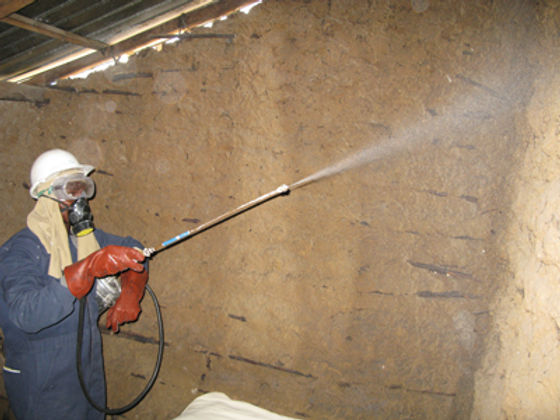Mosquito Control: What You Need to Know About Indoor Spraying

Mosquitoes can spread germs that make people sick. They bite day and night and can live inside your home if you don’t have screens on windows and doors to keep them outside. If you have mosquitoes inside your home, spraying an insecticide may reduce the number of mosquitoes and your chances of being bitten by an infected mosquito.
Select and use indoor insect spray products
✪ Use indoor insect sprays if you don’t have window and door screens.
✪ Read product labels and select one that kills adult mosquitoes.
✪ Indoor insect spray products are available as:
✼ Foggers or aerosols: These products can be used to kill mosquitoes in the air. WARNING: You and your pets must leave the home when foggers or aerosols are used. Cover fish tanks. You can return home after the spray has dried.
✼ Sprays: These products are applied to surfaces where mosquitoes rest. Mosquitoes die when they come into contact with these surfaces. It is safe for you and your pets to stay inside when sprays are applied.
✪ Products work immediately. Some may need to be reapplied.
✪ Always follow the product label instructions. Do not apply more product than directed or reapply more often than stated in product label instructions.
Treat areas where mosquitoes rest
Mosquitoes rest in cool, dark, humid areas like under sinks and in showers, in closets, in the laundry room, and behind furniture.
Take more steps to control mosquitoes indoors
Indoor spraying alone will not keep your home free of mosquitoes. Follow these additional steps to help reduce mosquitoes inside your home:
✪ Use screens on windows and doors. Repair holes in screens to keep mosquitoes outdoors.
✪ Use air conditioning, if available.
✪ Stop mosquitoes from laying eggs in or near water.
✪ Once a week, empty and scrub, turn over, cover, or throw out items that hold water, like vases and flowerpot saucers.
✪ Check indoors and outdoors.
Information on Insecticides and Health:
The US Environmental Protection Agency oversees the registration of these chemicals.
The National Pesticide Information Center (NPIC) provides information online or through a toll-free number, 1-800-858-7378.
